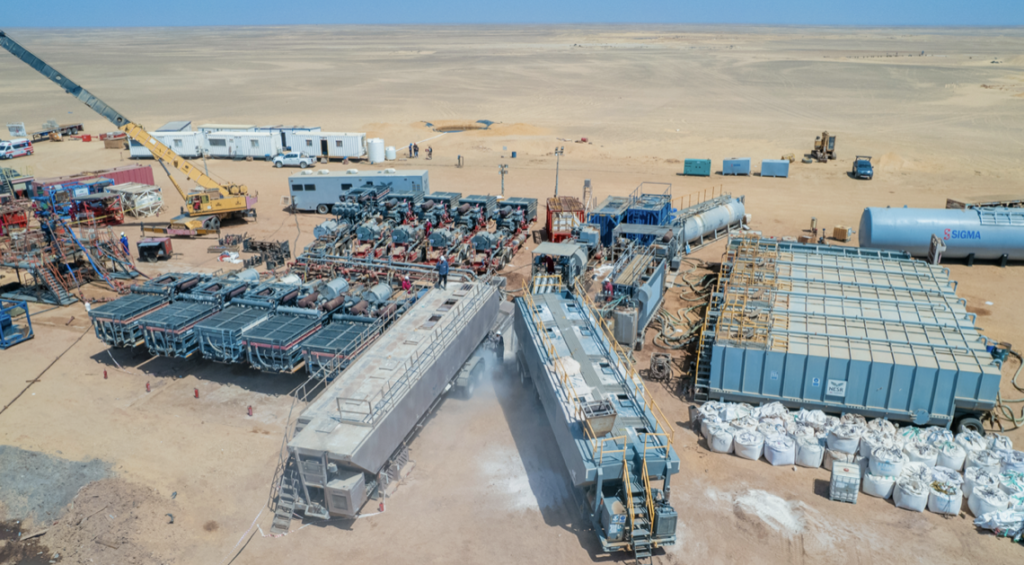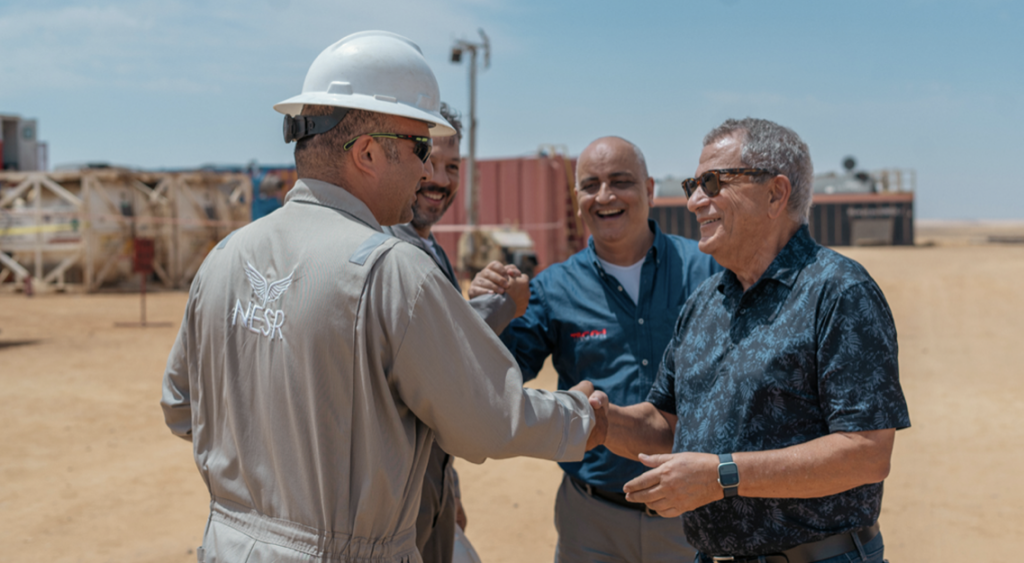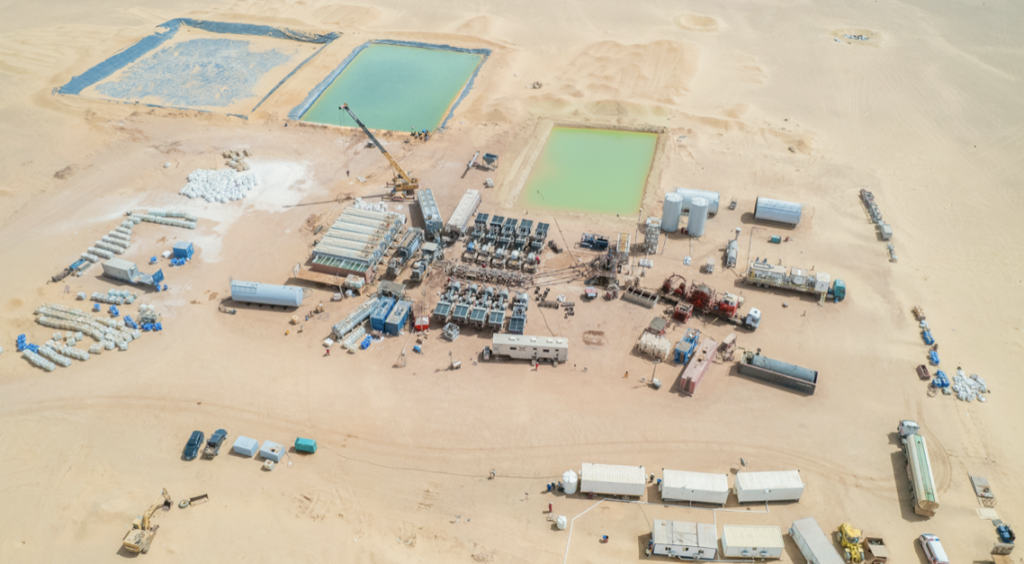Zinger Key Points
- There’s an advantage to investing in a company led by a team with multiple past wins
- TAG Oil is seeking to make Egypt the next locale to see the value of its unconventional assets unlocked
- With a series of potential upcoming catalysts, TAG Oil is well-positioned in the current market
In general, when investing in a junior oil and gas explorer, it makes sense to invest in one led by a team who's done so successfully.
At the helm of Canadian oil and gas explorer TAG Oil Ltd. TSXV: TAO | OTCQX: TAOIF | FSE: T0P is Executive Chairman and CEO Abby Badwi, whose track record includes four successful exits over the past two decades.
As CEO of Rally Energy, Badwi grew production at the company's Egypt- and Pakistan-based operations to 8,000 barrels of oil per day (bopd) before selling it in 2007 for $890 million. As Founder and Chairman of Verano Energy, he proved up oil production and successfully exited in 2014 through a $200 million sale.
He later served as CEO and Vice Chairman of Bankers Petroleum, an Albanian oil producer, where he scaled production to over 20,000 bopd and led its $790 million sale in 2016. Most recently, as CEO of Kuwait Energy, operating assets across Egypt, Oman, and Iraq, Badwi oversaw the company's $830 million sale in 2019.
Leveraging his proven track record of generating shareholder value, Badwi has been leading TAG Oil since 2020. The Company has a focus on Egypt and a determination to bring unconventional extraction methods to the region.
"The key to success is good people, good assets and funding. We have two in place and are working on the third." — Abby Badwi, Executive Chairman and CEO, TAG Oil

Photo: Frac operations at T-100 in BED-1, TAG Oil's first horizontal well, is a key step in unlocking the ARF formation’s potential.
Exploring unconventional assets in Egypt
TAG Oil entered Egypt in 2022 when it signed a petroleum services agreement with Egyptian General Petroleum Company (EGPC). The agreement gives TAG Oil the rights to develop the Abu Roash "F" (ARF) formation in the BED-1 field.
TAG Oil's BED-1 concession is located in Egypt's Western Desert, a region within a country that has been producing oil both onshore and offshore for over a century. "Most of the major oil companies operate in Egypt," says Badwi, "along with leading service providers like Schlumberger, Halliburton, and Baker Hughes."
The BED-1 concession previously produced over 90 million barrels of light oil for Shell over a 30-year period. The asset was relinquished in 2012 and is now operated by EGPC subsidiary, the Badr Petroleum Company.
Badwi and the TAG Oil team see significant potential in the ARF formation, viewing it as an unconventional resource that could be unlocked using horizontal drilling and hydraulic fracturing. While this approach is relatively new to Egypt, it has been very successfully proven in North America.
The area has seen some horizontal drilling and some smaller fracks, but Badwi says "it has not seen the 1,000-metre, 1,500-metre horizontal holes with 30 to 40 stage fracks, and that is where we see the opportunity."

Photo: Chairman & CEO, Abby Badwi, at the BED-1 field in Egypt strengthening partnerships & overseeing progress at the field.
Similarities between ARF and Eagle Ford
TAG Oil sees strong geological parallels between the ARF formation in BED-1 and the prolific Eagle Ford formation in Texas. Eagle Ford has been producing for over 13 years and is expected to yield 8–10 billion barrels of oil over its lifetime.
Other similarities between Eagle Ford and the BED-1 ARF include Total Organic Content (TOC), depositional environments, depth of the oil window, and permeabilities on the nano-darcy scale prior to fracturing.
At 10,000 square kilometres, the ARF play spans roughly twice the area of Eagle Ford.
In addition, BED-1 ARF has lower water saturation than Eagle Ford, slightly better oil quality and viscosity, higher pressure and temperature, and less shale content. All these formation characteristics make the ARF a prime candidate for unconventional extraction methods.
Badwi comments: "The window is there where oil is producible if you can connect the porosities with the permeabilities."
An independent evaluation by RPS Energy Canada Ltd. estimates that the ARF formation within the BED-1 concession contains significant oil resources, with oil initially in place (OIIP) estimated at 531.5 million barrels.

Photo: Aerial view of TAG Oil's BED-1 site, targeting ARF with an estimated 500M+ barrels of oil in place & strong commercial potential.
Two targets provide proof-of-concept
As part of its strategy in Egypt's Western Desert, TAG Oil re-entered a vertical well in 2023 and, in 2024, drilled a 300-metre horizontal section followed by a multi-stage fracture stimulation at BED4-T100.
The re-entry of the vertical well provided strong proof of concept that the ARF formation is responsive to unconventional extraction methods. "The well came on production at very good rates around 140 barrels of oil equivalent per day (boed) but, as expected with a single frack, it declined," says Badwi. To date, the well has produced over 15,000 barrels.
Encouraged by those results, TAG Oil proceeded to drill a horizontal well at BED4-T100. Drilling began in April 2023, and the well was brought online in December. So far, it has yielded over 25,000 barrels of oil.
With this initial success, TAG Oil sees the potential to drill 18 to 20 horizontal wells with multi-stage fracture stimulation across the east-central portion of the BED-1 concession. According to Badwi, if that plan comes to fruition, it could result in 20 million barrels of production at a 15,000 to 20,00 boed rate. "That's what we're trying to achieve over the next 2–3 years," he says.
Acquisition opportunity on the horizon
Looking to expand this opportunity, TAG Oil has received a "No Objection Letter" approval from an industry operator in Egypt on the Company's proposal to acquire a significant interest in a sizable Western Desert concession.
The 2,000-square-kilometere concession would dramatically increase TAG Oil's access to the ARF and add immediate conventional production.
If the deal closes, TAG Oil's short-term goal for this concession is to re-enter shut-in wells that have produced conventional oil. Bawdi says that effort could "bring in 100-300 boed to supplement our cash flow and give us the money to start developing the concession."
A variety of near-term catalysts
The closing of that deal is one of a handful of short-term catalysts for TAG Oil's share price.
TAG Oil has also now entered into a definitive agreement to sell its royalties on its New Zealand assets. These royalties, which generate approximately $1 million per year, are being monetized as part of the Company's strategy to unlock value from non-core assets.
That money would help support horizontal drilling in Egypt, as would a potential partner on the BED-1 concessions. Securing a joint venture partner would prevent TAG Oil from having to issue equity to fund the horizontal wells on ARF. Badwi expects these deals to close "by the first half of 2025."
These catalysts will give TAG Oil the financial wherewithal to go with the Egypt assets and the technical team has already assembled. Badwi concludes: "The key to success is good people, good assets, and funding. We have two in place and are working on the third."
To learn more about TAG Oil, visit their website or follow them on social media:
X
This post was authored by an external contributor and does not represent Benzinga’s opinions and has not been edited for content. This contains sponsored content and is for informational purposes only and not intended to be investing advice.
© 2025 Benzinga.com. Benzinga does not provide investment advice. All rights reserved.
Trade confidently with insights and alerts from analyst ratings, free reports and breaking news that affects the stocks you care about.